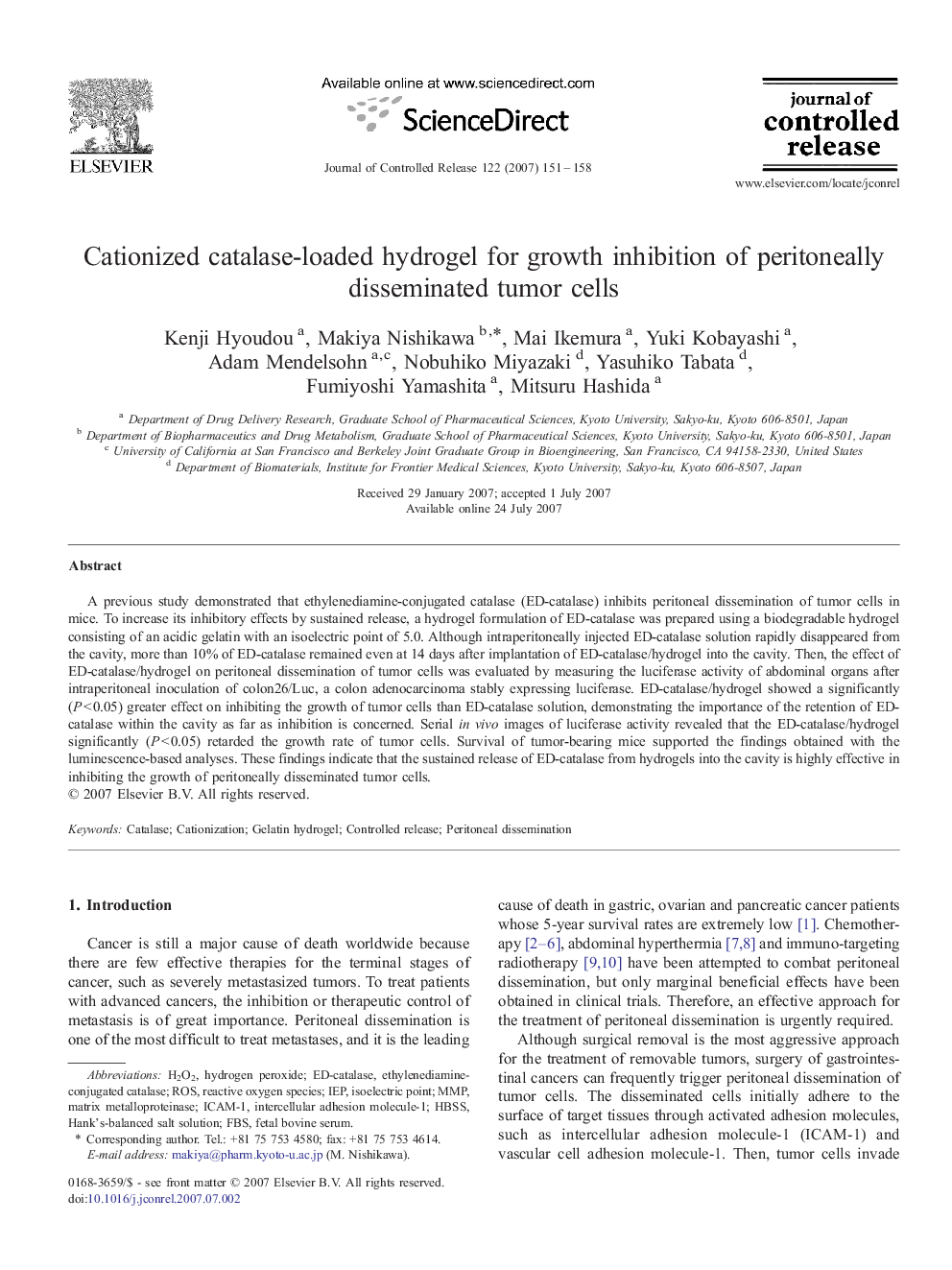| Article ID | Journal | Published Year | Pages | File Type |
|---|---|---|---|---|
| 1427272 | Journal of Controlled Release | 2007 | 8 Pages |
Abstract
A previous study demonstrated that ethylenediamine-conjugated catalase (ED-catalase) inhibits peritoneal dissemination of tumor cells in mice. To increase its inhibitory effects by sustained release, a hydrogel formulation of ED-catalase was prepared using a biodegradable hydrogel consisting of an acidic gelatin with an isoelectric point of 5.0. Although intraperitoneally injected ED-catalase solution rapidly disappeared from the cavity, more than 10% of ED-catalase remained even at 14Â days after implantation of ED-catalase/hydrogel into the cavity. Then, the effect of ED-catalase/hydrogel on peritoneal dissemination of tumor cells was evaluated by measuring the luciferase activity of abdominal organs after intraperitoneal inoculation of colon26/Luc, a colon adenocarcinoma stably expressing luciferase. ED-catalase/hydrogel showed a significantly (PÂ <Â 0.05) greater effect on inhibiting the growth of tumor cells than ED-catalase solution, demonstrating the importance of the retention of ED-catalase within the cavity as far as inhibition is concerned. Serial in vivo images of luciferase activity revealed that the ED-catalase/hydrogel significantly (PÂ <Â 0.05) retarded the growth rate of tumor cells. Survival of tumor-bearing mice supported the findings obtained with the luminescence-based analyses. These findings indicate that the sustained release of ED-catalase from hydrogels into the cavity is highly effective in inhibiting the growth of peritoneally disseminated tumor cells.
Keywords
Related Topics
Physical Sciences and Engineering
Materials Science
Biomaterials
Authors
Kenji Hyoudou, Makiya Nishikawa, Mai Ikemura, Yuki Kobayashi, Adam Mendelsohn, Nobuhiko Miyazaki, Yasuhiko Tabata, Fumiyoshi Yamashita, Mitsuru Hashida,
